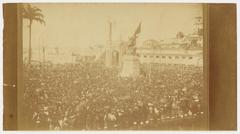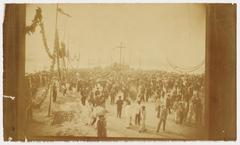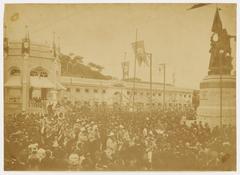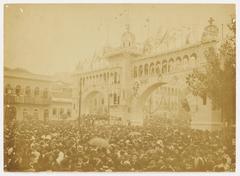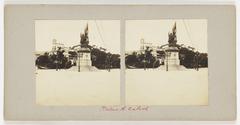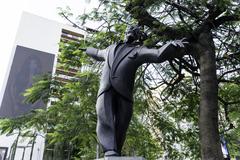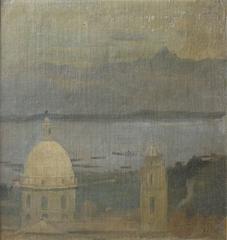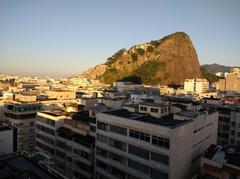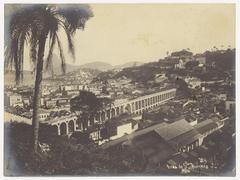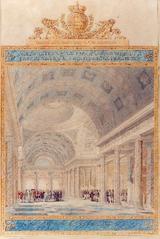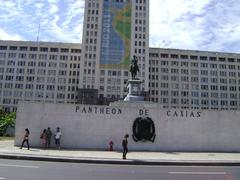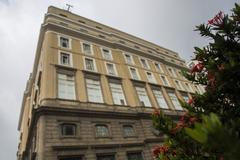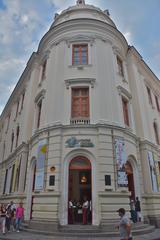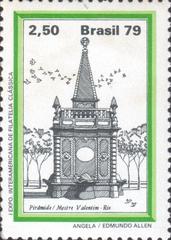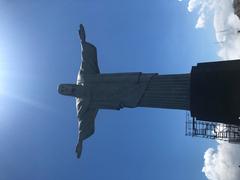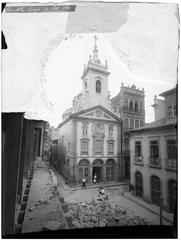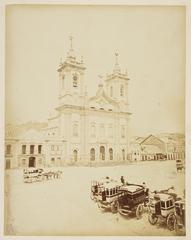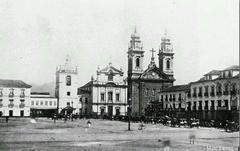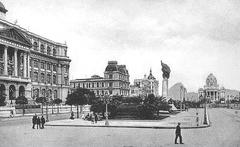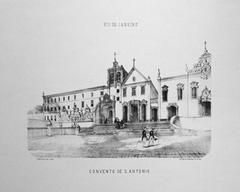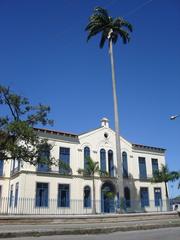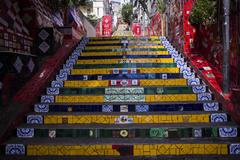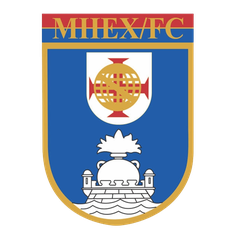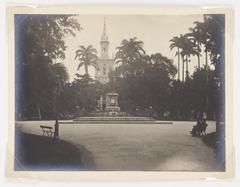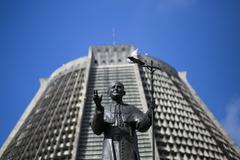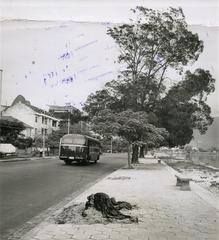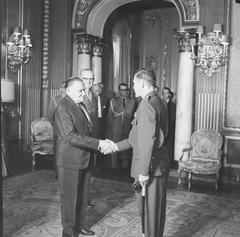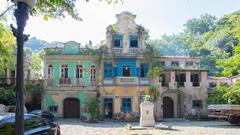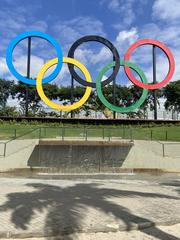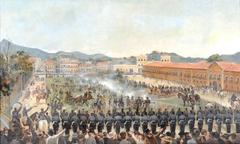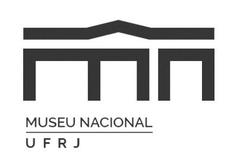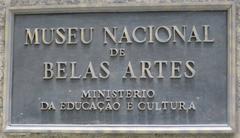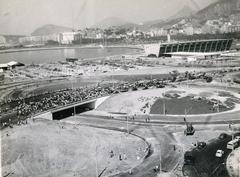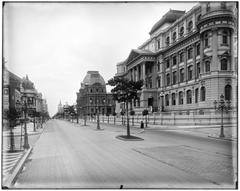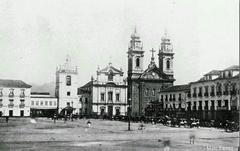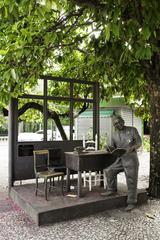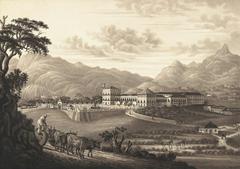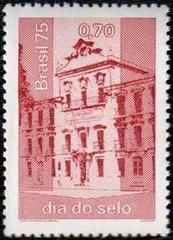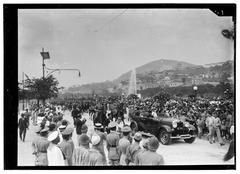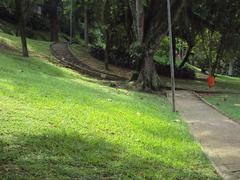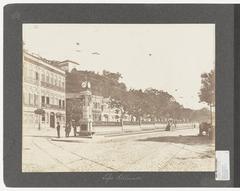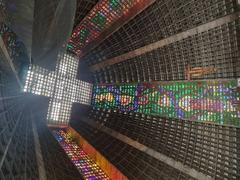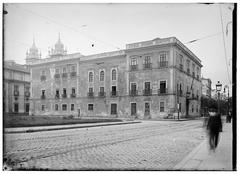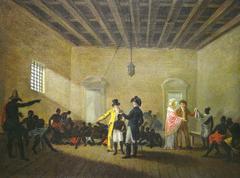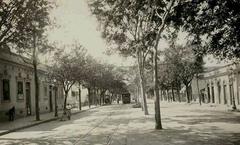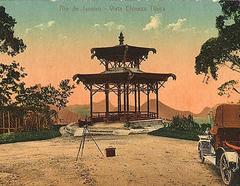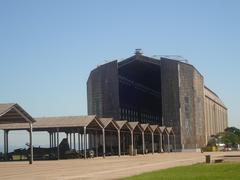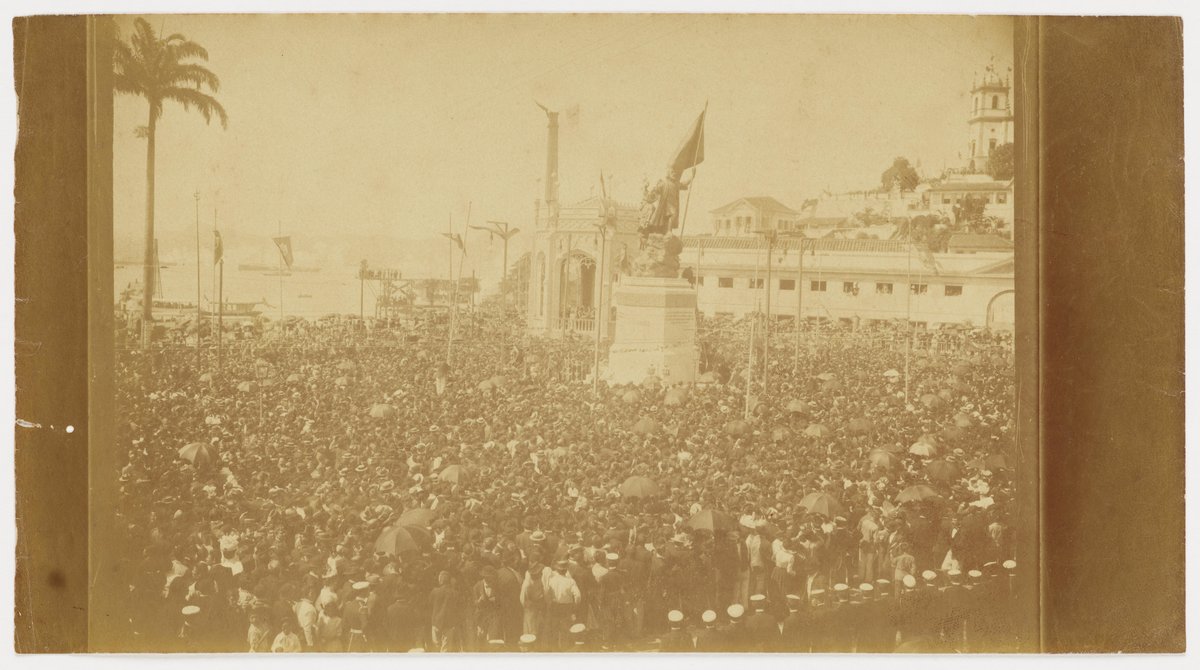
Descobrimento do Brasil: Visiting Hours, Tickets & Travel Guide to Rio de Janeiro Historical Sites
Date: 14/06/2025
Introduction
The Descobrimento do Brasil, or “Discovery of Brazil,” marks a transformative event in the nation’s history, commemorating the Portuguese fleet’s arrival on April 22, 1500, under Pedro Álvares Cabral. While the term “discovery” has long been used, contemporary perspectives increasingly center the complex legacy of colonization, recognizing the deep-rooted presence and cultures of Indigenous peoples prior to European arrival. This guide explores Rio de Janeiro’s historical sites tied to the Descobrimento, offering practical visitor details—like visiting hours and ticketing—along with a nuanced look at the city’s colonial and cultural evolution (O Maringá; Calendario.Online).
Table of Contents
- The Portuguese Arrival and the “Discovery” Narrative
- Indigenous Perspectives and Historical Reassessment
- Rio de Janeiro’s Role in Colonial History
- Colonial Expansion, Slavery & Economic Transformation
- Must-Visit Historical Sites: Hours, Tickets, and Accessibility
- Monuments and Memory: Commemoration in Rio
- Cultural Significance and Contemporary Reflections
- Practical Visitor Tips
- Frequently Asked Questions (FAQs)
- Key Dates and Figures
- Visual and Interactive Resources
- Conclusion and Call to Action
- References and Further Reading
The Portuguese Arrival and the “Discovery” Narrative
On April 22, 1500, Pedro Álvares Cabral’s fleet landed on the coast of present-day Bahia, initiating European colonization in Brazil (historiadobrasil.net). The Portuguese arrival, guided by expansionist policies and the Treaty of Tordesillas, led to contact with Indigenous nations such as the Tupiniquim. While this event is often celebrated as the “discovery,” it is vital to contextualize that millions of Indigenous peoples already inhabited these lands for millennia prior to European arrival (InfoEscola; O Maringá).
Indigenous Perspectives and Historical Reassessment
Modern scholarship and cultural movements increasingly highlight Indigenous agency and the profound impacts of colonization—displacement, disease, and forced assimilation—that followed the Portuguese landing. Museums and public programs in Rio now work to incorporate Indigenous histories and perspectives, fostering a more inclusive understanding of Brazil’s origins (O Maringá; The Art of Gallivanting).
Rio de Janeiro’s Role in Colonial History
Though the first Portuguese landing was in Bahia, Rio de Janeiro quickly became a strategic colonial outpost. On January 1, 1502, Gaspar de Lemos explored Guanabara Bay—mistakenly naming it “Rio de Janeiro” (River of January). The city’s early years were shaped by rivalry between the Portuguese and French—who established the France Antarctique colony in 1555—until the Portuguese expelled them in 1567 and founded São Sebastião do Rio de Janeiro (InfoEscola; Rio the Guide). By the 18th century, Rio had become a principal port for gold exports, and in 1763, it replaced Salvador as the colonial capital (Rio de Janeiro History).
Colonial Expansion, Slavery & Economic Transformation
Rio’s prominence soared with the export of gold and diamonds from Minas Gerais, transforming it into the largest entry point for enslaved Africans in the Americas—shaping the city’s culture and demographics (Rio de Janeiro History). The legacy of slavery is deeply woven into Rio’s Afro-Brazilian communities, music, cuisine, and social fabric.
Must-Visit Historical Sites: Hours, Tickets, and Accessibility
Largo da Glória and Pedro Álvares Cabral Statue
- Visiting Hours: Daily, 8:00 AM – 6:00 PM
- Tickets: Free entry
- Accessibility: Publicly accessible, near public transport
Museu Histórico Nacional (National Historical Museum)
- Location: Praça Marechal Âncora, Centro
- Hours: Tuesday–Sunday, 10:00 AM – 5:00 PM
- Tickets: ~R$20; discounts for students/seniors
- Purchase: Onsite or via the official website (Brazil Brasil)
- Accessibility: Wheelchair accessible; guided tours available (timeout.com)
Santa Teresa Neighborhood
- Highlights: Historic tram, colonial mansions, art galleries
- Best Explored: On foot or with a guided tour
Centro District
- Sites: Royal Portuguese Reading Room, colonial churches, museums
- Hours: Museums usually open 10:00 AM – 5:00 PM; check individual sites
- Tickets: Vary by site; many offer online sales
Ilha Fiscal
- Hours: Wednesday–Sunday, 10:00 AM – 4:00 PM
- Tickets: Around R$20; available at the pier or through authorized operators (Our Adventure Journal)
Royal Portuguese Reading Room
- Hours: Monday–Friday, 9:00 AM – 7:00 PM; Saturday, 9:00 AM – 1:00 PM
- Tickets: Free entry
Tip: Always verify the latest hours and ticketing policies on official sites, especially during holidays or special events.
Monuments and Memory: Commemoration in Rio
Monuments like the Pedro Álvares Cabral statue (erected 1900) at Largo da Glória, and various memorials along the waterfront, commemorate the Descobrimento and the city’s layered colonial past (Diário do Rio). These public spaces provide opportunities for reflection and engagement with Brazil’s complex history.
Cultural Significance and Contemporary Reflections
Annually on April 22, Rio de Janeiro hosts cultural events, exhibitions, and performances commemorating the Descobrimento do Brasil. In recent years, these have increasingly included Indigenous and Afro-Brazilian voices, sparking conversations about national identity, historical trauma, and resilience (O Maringá; The Art of Gallivanting).
Practical Visitor Tips
- Plan Ahead: Book tickets online for popular museums to avoid queues.
- Best Time to Visit: April–June and September–November offer pleasant weather and cultural festivals (Travellers Worldwide).
- Transport: Rio’s metro and bus system connect major sites; registered taxis and rideshares are also available.
- Safety: Remain in well-trafficked areas; keep valuables secure (ChewsToExplore).
- Accessibility: Major museums are wheelchair accessible; always check with individual sites for accommodations.
Frequently Asked Questions (FAQs)
Q: What are the visiting hours for the Museu Histórico Nacional?
A: Tuesday–Sunday, 10:00 AM – 5:00 PM.
Q: How can I buy tickets for the Museum of Tomorrow or other museums?
A: Purchase online via official websites or on location.
Q: Are guided tours available?
A: Yes, many sites and neighborhoods offer guided tours, especially Santa Teresa and the National Historical Museum.
Q: Is the Cabral statue at Largo da Glória accessible?
A: Yes, though some uneven surfaces exist; assistance may be needed for visitors with mobility issues.
Key Dates and Figures
- April 22, 1500: Pedro Álvares Cabral lands in Brazil (O Maringá).
- January 1, 1502: Gaspar de Lemos explores Guanabara Bay, naming it Rio de Janeiro (Autarcas Monárquicos).
- 1555–1567: French occupation and expulsion from Guanabara Bay (InfoEscola).
- 1763: Rio becomes colonial capital (Rio de Janeiro History).
Visual and Interactive Resources
High-quality images, interactive maps, and virtual tours are available through official museum and tourism platforms, helping visitors plan self-guided or thematic tours.
Conclusion and Call to Action
Rio de Janeiro’s historical sites offer an immersive exploration of Brazil’s origins, colonial dynamics, and rich cultural tapestry. By engaging with both the celebratory and critical aspects of the Descobrimento do Brasil, visitors gain deeper insight into the nation’s enduring complexities.
Plan your visit today:
- Use the Audiala app for guided tours and real-time updates
- Download interactive maps and resources
- Explore related articles on Brazilian history and Rio’s attractions
- Follow us on social media for the latest travel tips and cultural insights
Experience the living legacy of the Descobrimento and be part of Brazil’s ongoing conversation about its past and future.
References and Further Reading
- Exploring Rio de Janeiro’s Historical Sites: Visiting Hours, Tickets, and Colonial Legacy, 2025, O Maringá (O Maringá)
- Descobrimento do Brasil in Rio de Janeiro: History, Visiting Hours, Tickets & Cultural Highlights, 2025, Calendario.Online (Calendario.Online)
- Rio de Janeiro Historical Sites, Visiting Hours & Connection to Brazil’s Discovery, 2025, Rio the Guide (Rio the Guide)
- Discovering Descobrimento do Brasil in Rio de Janeiro: Visiting Hours, Tickets, and Top Historical Sites, 2025, historiadobrasil.net (historiadobrasil.net)
- The Art of Gallivanting: Rio de Janeiro Culture, 2025 (The Art of Gallivanting)
- Diário do Rio: History of the Pedro Álvares Cabral Statue at Largo da Glória, 2025 (Diário do Rio)
- InfoEscola: History of Rio de Janeiro, 2025 (InfoEscola)
- Timeout.com: Attractions in Rio de Janeiro, 2025 (timeout.com)
